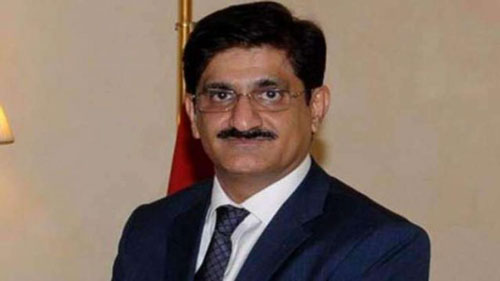Sindh Chief Minister Syed Murad Ali Shah announced an ambitious Rs 200 billion development initiative for Karachi, outlining key projects aimed at transforming the city’s infrastructure and addressing critical challenges. Major plans include the construction of the Malir Expressway and the introduction of significant water supply measures, which were detailed in his speech at the Korangi Association of Trade and Industry (KATI) annual dinner. A cornerstone of the development plan is the Malir Expressway, designed to connect Karachi’s port with Jinnah International Airport.
This key project aims to reduce traffic congestion while improving logistics for the city’s businesses. Alongside the expressway, Shah revealed a strategy to mitigate Karachi’s longstanding water shortages. The Sindh government intends to bring 200 million gallons of water from the Hub Dam to the city by June 2025, addressing a growing need in the metropolis. These plans were disclosed during Shah’s address at the KATI annual dinner, where business leaders and political figures, including Provincial Minister for Industries Jam IkramDharejo and Karachi Police Chief JavedAlamOdho, were in attendance. During his speech, Shah criticized the federal government’s lack of investment in Sindh, particularly in Karachi.
He pointed out that while motorways have been built across Pakistan, the Karachi-Sukkur motorway remains incomplete. Shah also raised concerns over the delayed K4 water project, calling it the only major federal initiative for Karachi, despite its urgent need. Additionally, he highlighted the PKR 172 billion infrastructure cess that remains entangled in legal disputes, with the matter now awaiting resolution in the Supreme Court.
Despite these federal challenges, the Sindh government continues to push forward with local development efforts. Shah revealed that President Asif Ali Zardari plans to visit China next month to seek further investments, especially for Karachi, as part of the Pakistan People’s Party’s (PPP) commitment to urban development and economic progress. During the event, KATI Patron-in-Chief SM Tanveer stressed the need for immediate action to stabilize Pakistan’s economy.
He referred to the recent IMF loan as a temporary measure, emphasizing the importance of reforming the Independent Power Producers (IPPs) system to alleviate the country’s financial strain. Tanveer also praised Sindh’s healthcare initiatives, noting that the province has become a destination for international patients seeking treatment. He paid tribute to his late father, SM Munir, a respected business figure whose influence continues to guide KATI’s efforts. KATI President JoharQandhari added to the conversation by outlining the challenges faced by Karachi’s industrialists, particularly rising electricity costs and water shortages.
He highlighted that businesses in the city are paying an extra Rs. 5 per unit of electricity compared to other regions and are forced to invest millions to secure water for their operations. Qandhari applauded the Sindh government’s work in health, education, and infrastructure but noted that these initiatives have not received sufficient recognition.
He pointed to the PKR 1 billion fund provided to KITE Limited, a public-private partnership enhancing Korangi Industrial Area’s infrastructure, as a prime example of effective development efforts. Deputy Patron-in-Chief ZubairChhaya emphasized Karachi’s pivotal role in Pakistan’s economy, stressing that national economic challenges cannot be overcome without prioritizing the city’s needs.
He urged the government to reduce production costs for exporters to boost exports, warning that the country’s revenue will remain stagnant unless the concerns of taxpayers and businesses are addressed. Adding to this, KITE Limited CEO Zahid Saeed highlighted that Karachi accounts for 56% of Pakistan’s exports and 70% of Sindh’s revenue, underscoring the importance of public-private partnerships in driving the city’s progress.
Saeed praised the Sindh government’s infrastructure efforts in Korangi, noting that PKR 1.35 billion has already been invested to improve the area. The comprehensive development plan, alongside continued efforts from both the government and business sectors, is seen as crucial to Karachi’s growth and its ability to contribute to Pakistan’s overall economic stability.









